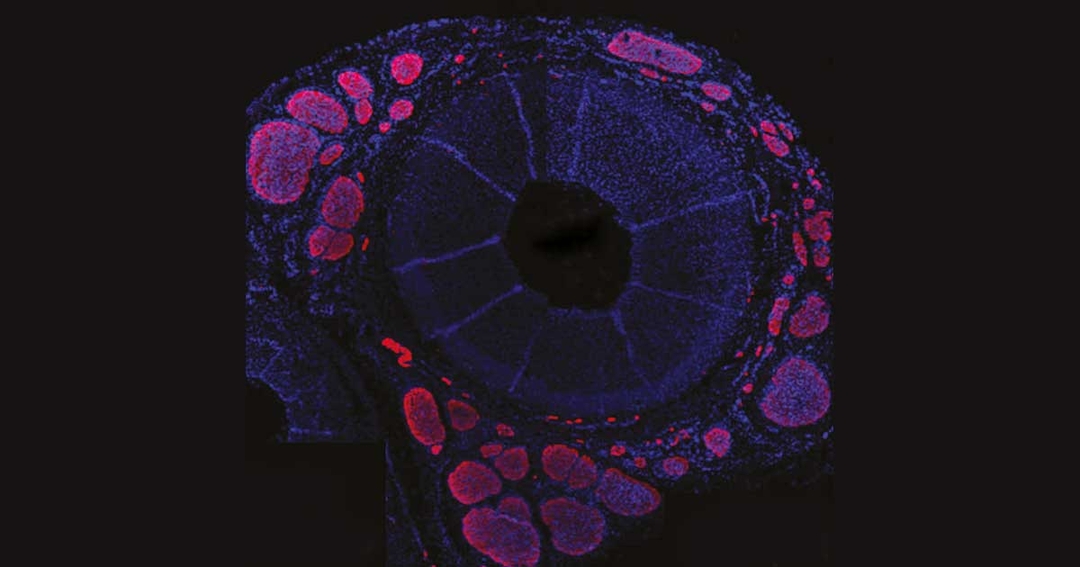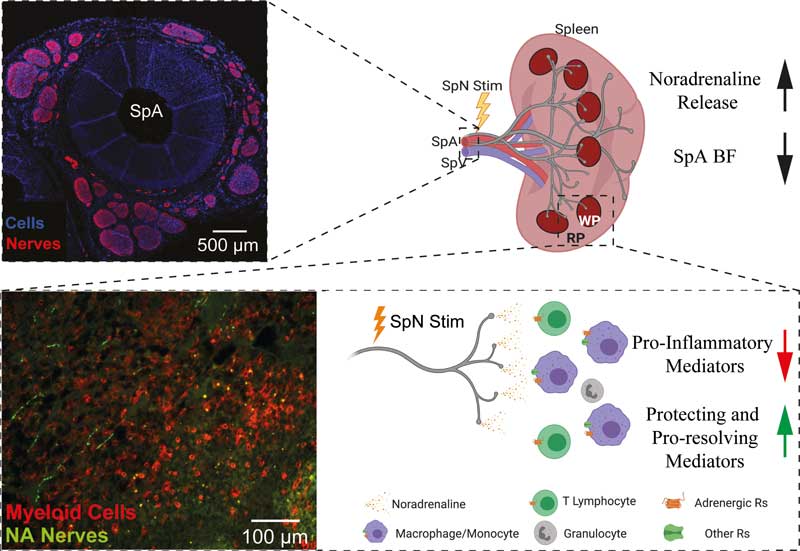12 May 2021
Project also involved Galvani Bioelectronics, Queen Mary University of London and University of Cambridge, and shows significant finding with potential to improve future therapies.


Research involving scientists at the RVC has demonstrated how neural connections to the spleen can be modulated with implanted electrodes to regulate systemic immune responses.
The finding – from a research project involving Galvani Bioelectronics, Queen Mary University of London and the University of Cambridge – has potential to improve therapy strategies for inflammatory conditions in humans.
Researchers performed neuroanatomical and functional comparisons of the mouse, rat, pig and human splenic nerve using in vivo and ex vivo preparations, determining that the neural connections to the spleen in pigs were a good model for human splenic nerve innervation.
Using special techniques, the researchers demonstrated:
The results additionally showed daily splenic nerve neuromodulation via implanted electronics and clinically relevant stimulation parameters was safe and well-tolerated in pigs.
Dick Werling, director of the Centre for Vaccinology and Regenerative Medicine at the RVC, said: “The identification that direct nerve stimulation can impact on the immune response generated opens up a really new and exciting avenue to potentially prevent, for example, overshooting immune responses under specific conditions.”
The findings are published in Frontiers in Immunology and Proceedings of the National Academy of Science of the United States of America.